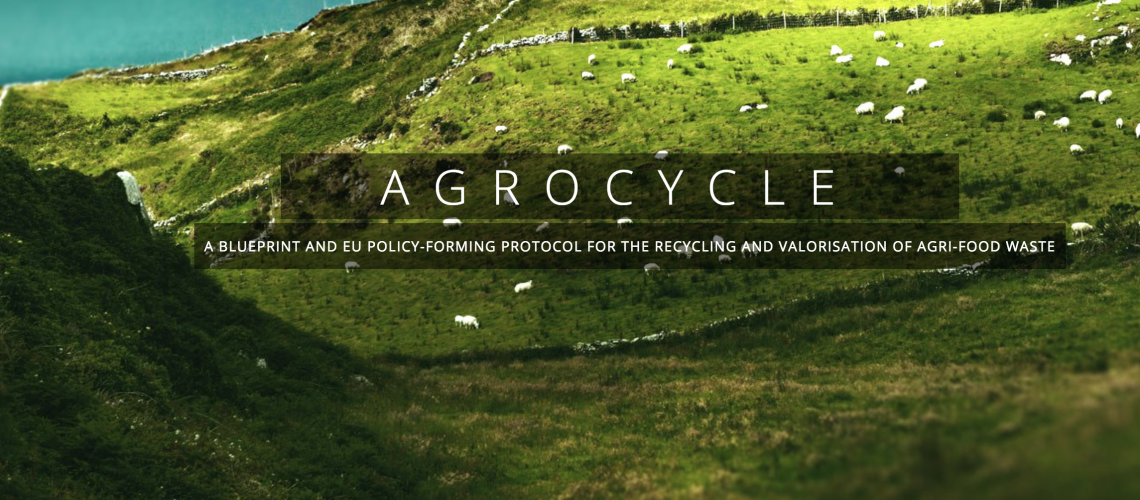From a linear to a circular economy in the agri-food sector
After 36 months, June 2019 sees the end of the AGROCYCLE project.
AgroCycle has been funded by the European Union’s Horizon 2020 Research and Innovation program. It applies circular economy initiatives to the agri-food sector and includes over 26 partners from the EU, China and Hong Kong. The purpose of the project was to explore the opportunities for waste valorisation in the agri-food sector and extend the lifespan of agricultural wastes, co-products and by-products (AWCB). The results from AgroCycle can be utilised as a blueprint to advise future EU policy in the agri-food sector, through encouraging the transition to a circular economy.
Exergy led the development of biofuels using two different technologies: pyrolysis of agricultural waste and microbial fuel cell (MFC) technology. This research was in collaboration with the University of Sheffield and the University of Bath.
Pyrolisis of agricultural waste
AgroCycle demonstrates that the pyrolysis of AWCB could prove a successful mechanism in the alleviation of the economic and environmental strain associated with current waste management techniques. Pyrolysis would reduce the creation of agri-food waste along production and supply chains, valorising products to be recycled back into the manufacturing process or sold as a material of greater industrial value. Additionally, the development of a simulation by Exergy of the complete pyrolysis enables preliminary product and economic predictions, under defined conditions. Significantly, the pyrolysis of AWCB avoids the ‘food versus fuel’ debate surrounding the use of dedicated biofuel crops. The project also made vital advances in MFC technology through the simplification of the MFC design and manufacturing process. This overcomes the issue of cost that previously hindered MFC development and uptake. Additionally, AgroCycle demonstrates the ability to increase MFC power output through unit ‘stacking’. Increased affordability and power output drastically improve the viability of system scale-up. The project’s developments are therefore significant in the progression towards MFC commercialisation. This could prove to be a viable method of energy generation in countries economically reliant on agriculture, and an alternative for those without access to a mains electricity grid.
Educating future generations
The longevity of sustainable and circular waste transitions is supported further by an additional initiative unique to AgroCycle: an educational platform for young people, containing information on the circular economy. This includes classroom resources, lesson plans and children’s videos, focusing on the processes and benefits involved in waste valorization. Accessible, engaging materials are imperative in the education of current and future consumer behaviors, increasing the likelihood of successful sustainable and circular transitions.
Although the MFC technology discussed is not yet commercialised, AgroCycle demonstrates the value that is attainable as a result of transitioning from a linear to a circular economy in the agri-food sector. AgroCycle delivers a blueprint for future EU policy on agri-food waste valorisation, alongside innovative educational resources.
Exergy will continue to be involved in bio-based research, alongside further projects on the development of valorisation technologies.

